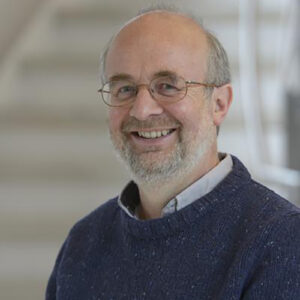
- This event has passed.
Physical Chemistry Seminar Series: Malcolm Levitt (University of Southampton) – Via Zoom
February 2, 2021 | 12:00 pm - 1:00 pm
To join the Zoom link, please email Thomas Theis at ttheis@ncsu.edu

Professor of Physical Chemistry, School of Chemistry, University of Southampton, UK
Title:
Endofullerenes: Nano-scale test tubes for single molecules and atoms.
Abstract:
Molecular endofullerenes consist of symmetrical carbon cages, with each cage fully encapsulating a single small molecule. These remarkable systems are synthesized by “molecular surgery” in which multistep organic syntheses lead to the opening of an orifice in the closed fullerene cage, the insertion of a molecule through the orifice, and the suturing of the cage. This leads to a system in which a small molecules is fully confined but completely free to rotate, even at the lowest accessible temperatures. The molecule behaves as a real-world “particle in a box” with quantized energy levels given by the solutions of the Schrödinger equation. To date molecular endofullerenes containing H2, H2O, HF and CH4 are known, as well as atomic endofullerenes containing the noble gas atoms He, Ne and Ar. The quantum behaviour of the encapsulated molecules and atoms has been studied by low-temperature NMR, infrared spectroscopy, THz spectroscopy and neutron scattering. Apart from the “particle in a box” features of the molecular quantum mechanics, many of the systems display spin isomerism in which the Paul principle entangles the physically realisable nuclear spin states and the rotational quantum states. For example, water (H2O) has two spin isomers, called ortho and para water, and it is possible to observe the conversion between the spin isomers of water-endofullerene by nuclear magnetic resonance (NMR), terahertz spectroscopy, and by measuring the dielectric properties of the material. I will review the quantum mechanics and spectroscopy of molecular endofullerenes, and the different physical methods which are used to study them.
About the Speaker:
- Malcolm Levitt grew up in Hull and obtained his PhD from Oxford University in 1981, under the supervision of Professor Ray Freeman. He performed postdoctoral research with Shimon Vega in Israel and Richard Ernst at the ETH in Zürich (who received the Nobel Prize in Chemistry in 1991). He was then on the research staff at the Francis Bitter Magnet Laboratory at MIT, Boston, USA, for 4 years. He moved back to England as a Royal Society Research Fellow at the Centre for Superconductivity in Cambridge, before becoming a lecturer at the University of Stockholm, Sweden, where he was made a full professor in 1997. He moved back to England to take up a Professorship in Physical Chemistry at Southampton in April 2001.
- Malcolm was elected Fellow of the Royal Society in 2007. He won the LATSIS research prize of the ETH-Zürich in 1985, the Göran Gustafsson prize in Chemistry in 1996, the Ampère prize from the International Society of Magnetic Resonance in 2005, the Günther Laukien prize in Nuclear Magnetic Resonance Spectroscopy in 2008, the Russell Varian prize in Nuclear Magnetic Resonance in 2015, and the Paul Callaghan lecture (awarded by the International Society of Magnetic Resonance) in 2019. He is on the editorial boards of several journals, including the Journal of Magnetic Resonance and the Journal of Chemical Physics. He published Spin Dynamics, a textbook on Nuclear Magnetic Resonance, in 2001. The second Edition was published in 2007.
- Apart from science, he composes music, plays jazz, paints and sketches, and is interested in art, languages and politics.